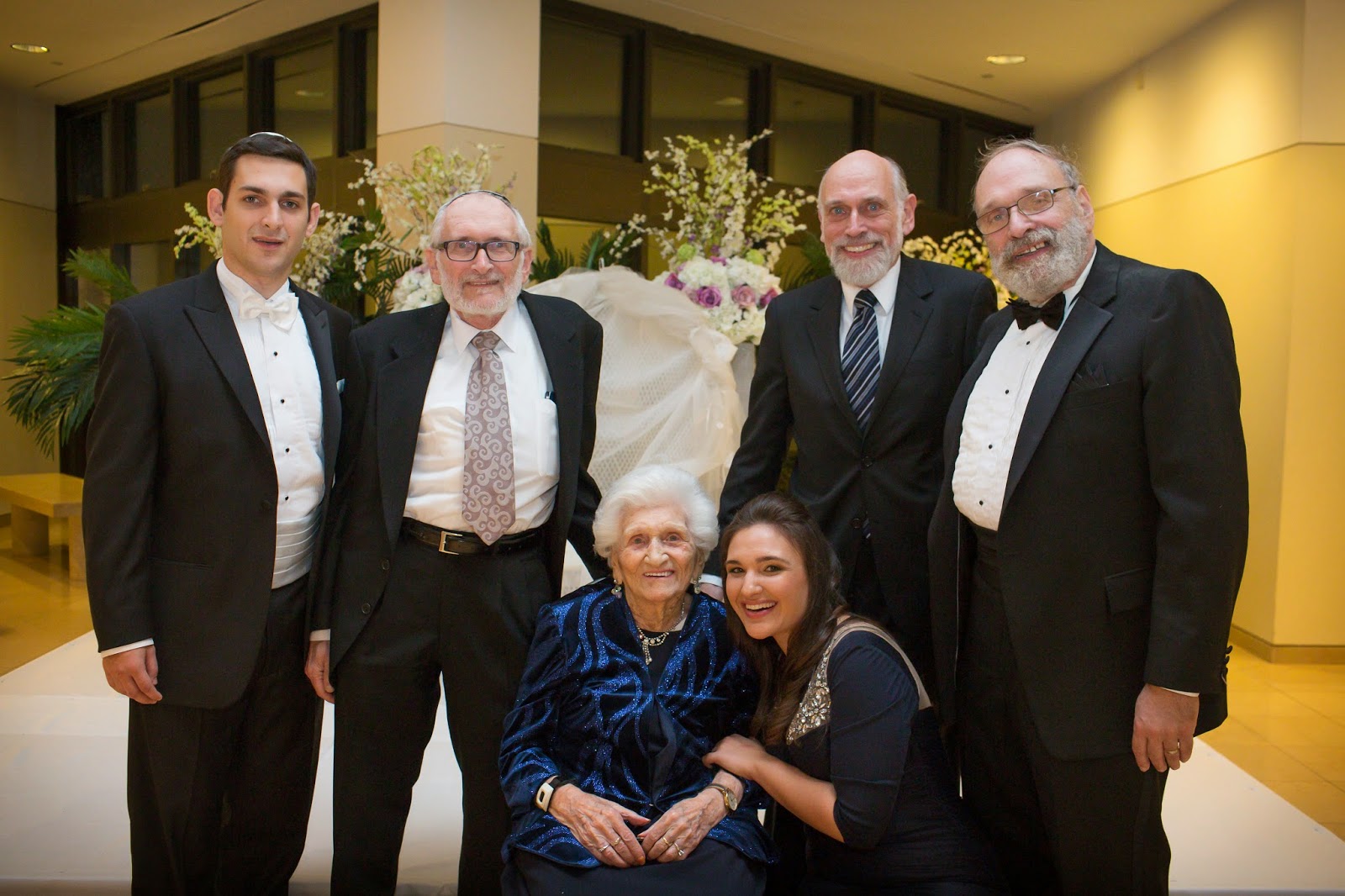The following was the Hesped (eulogy) that I gave at my grandmother funeral this afternoon.
(Bubbe, Margot and me with her three sons)
Before I begin I would like to apologize if I start tearing up. I couldn’t stop myself from crying at my wedding so I probably have no chance here.
The beginning of Shma, probably Judaism’s most foundational prayer, is peculiar. In this past Shabbos’s parsha we are commanded to:
Veahavta et hashem elokecha bechold levavcha bechol nafshecha UVechol MeOdeacha.
This sentence is normally translated as “You shall love your G-d with all your heart, your soul and your possessions based on Rashis commentary. According to this translation, these three things are disconnected. Three paths that we are able to show G-d our love that are discrete and separate. However, if we look at the etymology of the Biblical words through the ancient language, Akkadian and biblical Hebrew we receive a different message. Lev still means heart, but the heart in the ancient world is not just a place for passion, it is the holder of our inner thoughts. Nefesh does not mean soul, but throat and Meodecha from the word meod means your abundance. In this translation, we should love Hashem our G-d with all our heart meaning our thoughts and desires, our throat, meaning our words and Meodecha meaning what we do with our extra possessions. Esther Malka Bat Yisrael Zalman or as we knew her as Bubbe was an expert on these three ways of loving G-d and those around her.
Her Heart and thoughts: Bubbe is a bastion of hope and determination. After the horrors she went through when she was a young adult. Bubbe quickly rerouted and started a family again, beginning to create what you see in front of you now. We only found out afterwards, but it was an honor to find out I got married on the same day she did to my grandfather, just 68 years later. In case you were wondering the chance of that happening by coincidence is .274%. Her hope was indeed rewarded.
When we asked her about he experience in the Holocaust, Bubbe replied and I quote:
“I lost my whole family. I’m the only one who survived. No brothers, no sisters. Nobody. Thank G-d I’m here, G-d gave me years.”
Her confidence was inspiring. As a Jews we like to complain but it makes it difficult to worry about your own troubles when you have “Thank G-d, I’m here, G-d gave me years” ringing in your head.
Her thoughts never left G-d and they allowed for her ability to create her extensive family and life in America. She defined her family as good and religious. The traits she always said Margot and I must have in a spouse.
Somehow, people with the most complicated lives are able to understand things in the most succinct way.
Her words: In the spirit of Midbar sheker tirchak (stay away from falsehoods), Bubbe always said her mind. Whether about how she was feeling, our job prospects, or different parts of our personal lives: it didn’t matter. I used to joke that she was such a religious woman that she never had a filter even on the Sabbath. It was for this reason I brought Hannah to meet Bubbe even before she met most of my friends. Friends want to like your future wife. Bubbe would say what’s what.
As I was leaving the hospital on the day before Bubbe had a breathing tube put in limiting her speech, her aid Jesse, came in the room. Bubbe asked Jesse who I was. Thinking Bubbe’s memory was fading Jesse said I was her grandson. “He’s a Rabbi” Bubbe replied, proudly. Even if I never actually use my degree, or even forget everything I learned, Bubbe made the time spent worth it with just 3 words.
Her speech was powerful, to the point, and full of wisdom that she gave to all of us that are here.
What you do with your abundance: Bubbe did more than give her abundance, she created abundance so she could give it. The absolute worst thing you could do to Bubbe was not accepting food. Especially, when she had gone out of her way to get it or make it. It was good her stuffed cabbage and chocolate cookies were legendary, because not having them wasn’t exactly an option.
She had nothing when she came to America but was determined to have her boys lead a Jewish life. She sacrificed so much to allow her three sons to go to a yeshiva day school. We worry about a tuition crisis today, but we have it great. She had no abundance to give to her children but created it all her own.
In these ways and so many more Bubbe exemplified loving G-d and her family through her thoughts words and actions.
I wanted to end with a prayer but I couldn’t. How can mere good stand and pray for greatness? I can only hope she is sitting up there praying for us.


